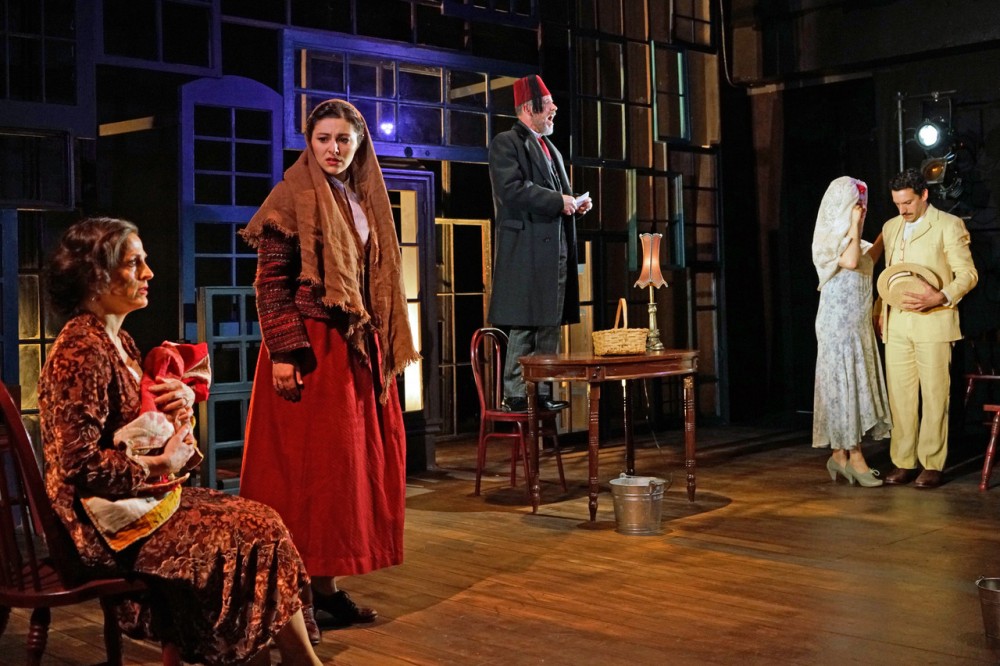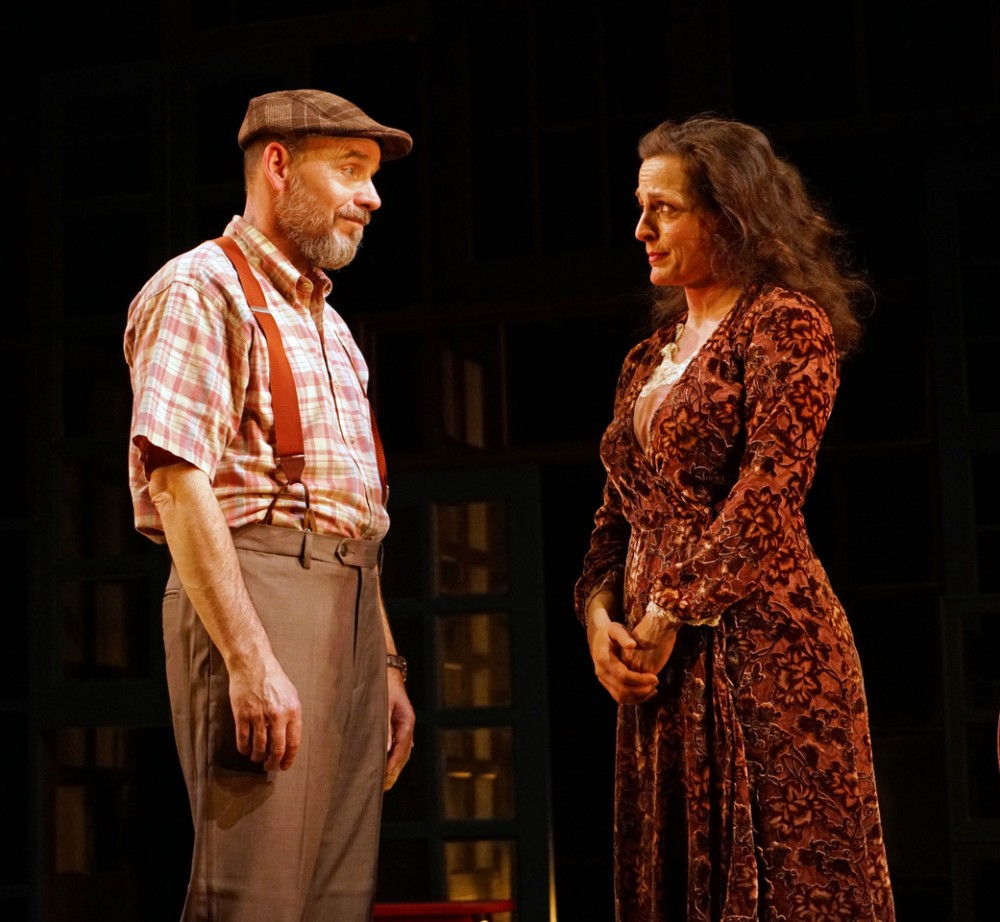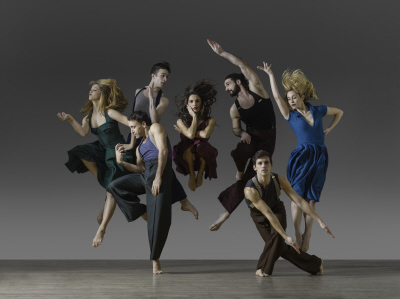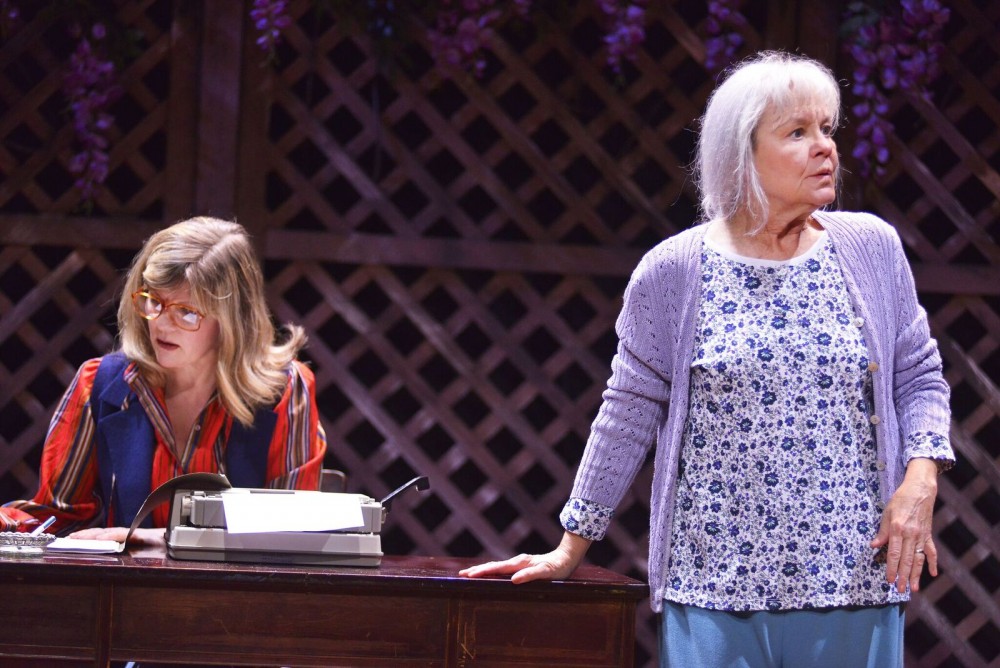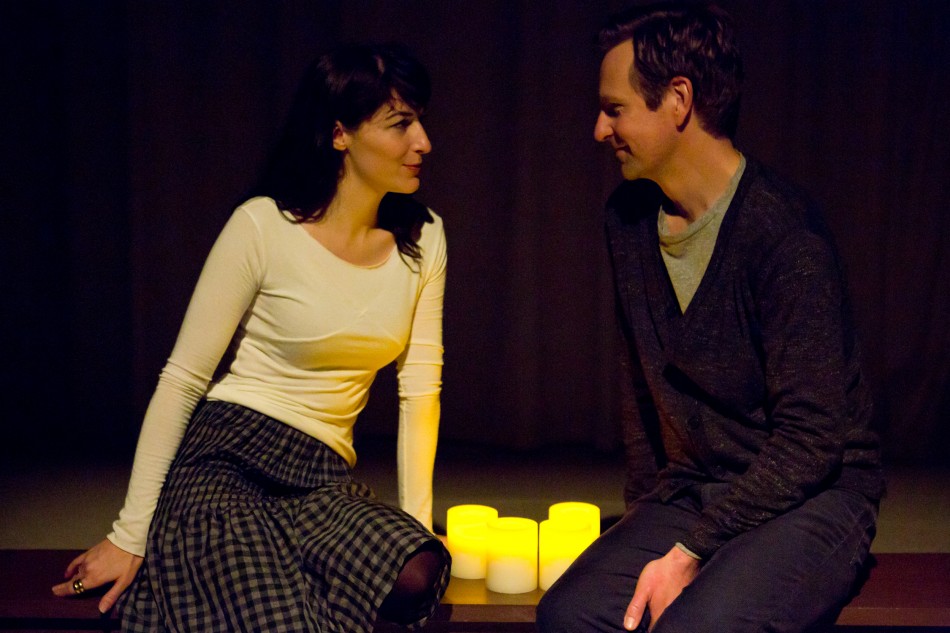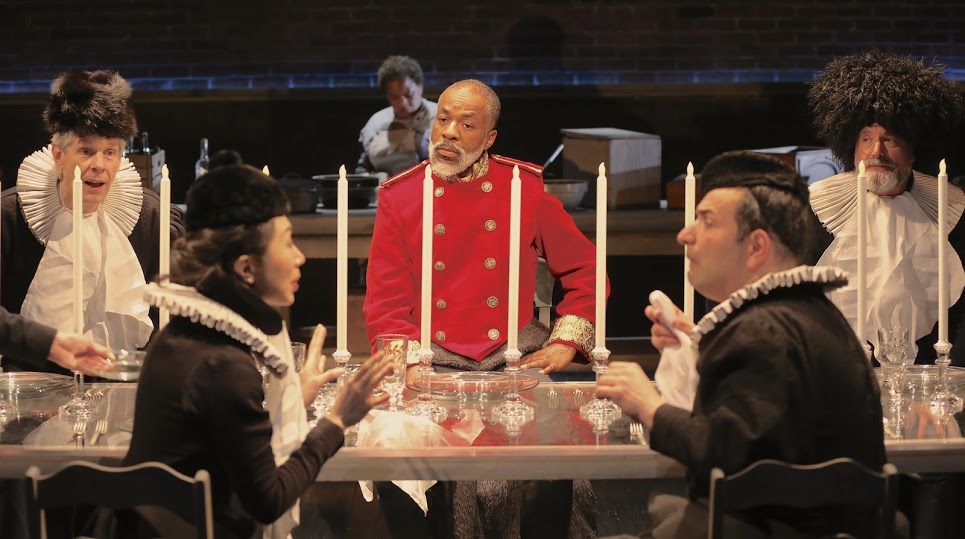by Cathy Hammer
Inspired by her grandmother’s life, Joyce Van Dyke’s Daybreak centers on Victoria, an Armenian refugee. In 1915, the Turks had invaded her hometown in what many now consider to be the first genocide of the 20th century. After their husbands were taken away and murdered by the Turkish troops, Victoria and her closest friend Varter had been forced to march with hundreds of other women and children across the desert. Along the way all of their own children died, but eventually the two women made it to America, remarried, and started new lives.
The play opens with an extended scene in which Victoria draws a parallel between the hurricane currently raging outside her Rhode Island home and the human storm that was caused by the invasion of her village 23 years earlier. This dialogue sets up the poetic, dreamlike quality of the storytelling that runs throughout the performance. Moving beyond a retelling of tragic history, the playwright explores the different ways in which people choose to deal with such horrific experiences. Is it better to constantly share those painful stories so that no one forgets or banish those memories and move on? Do you hold each generation accountable for the acts of their ancestors or work your way towards forgiveness? Parallels are easily drawn to other life-altering tragedies including the Holocaust and even our current attitude towards Muslim-Majority nations. Naturally, no blanket answers are provided, but the exercise is ultimately a hopeful one.
Van Dyke keeps the walls between the living and the dead and waking and dreaming very thin. Characters from every side speak freely to one another and also reach across time. Dates are placed strategically in the dialogue to help the audience follow the chronological relationship between events. Despite this established structure, there are a few exchanges that are confusing and a few defy explanation.
The script’s fluidity in time and dimension is aided by the creative hand of director Lucie Tiberghien. She often floats and twirls her actors onto the stage. Sheryl Liu’s striking set of windows (on the past) and doors (to the future) support Van Dyke’s concept of having 100 years represented simultaneously. Costumes by Dina El-Aziz combine period flair and modern touches. Sound and lighting design by Kate Marvin and Marie Yokoyama respectively focus audience attention.
Seasoned German actress Nicole Ansari plays Victoria with tremendous passion, though her character’s inability to see the Turkish people as individuals and a few too many “shattering moments” keep her role from having optimum range. As her husband Harry, Michael Irvin Pollard moves a tick above stereotype. Despite a misplaced accent, Tamara Sevunts makes a sweet Varter and also her namesake, Victoria’s daughter Rose. Saddled with representing the Turkish viewpoint is Melis Aker who does her best with underwritten roles. Bringing much needed warmth and humor to the production is Robert Najarian who plays multiple roles with distinction. Rounding out the cast is Angela Pierce who speaks from a more modern perspective as both Shoshana, a Jewish student interviewer, and her daughter Ruby.
The work has received a prestigious grant from the National Endowment for the Arts. More than a play, it is a rich cultural event. The mood has been wonderfully heightened by injections of music from a civilization that was all but wiped out. At critical turns, traditional dances help cement the bonds between the characters. Armenian needle lace is passed between them as a symbolic nod to what they left behind. The emotions generated by these touches are as powerful and lasting as any portion of the plot.
Daybreak is an admirable addition to the Pan Asian Repertory Theatre’s 41st season, fulfilling the mission to tell the stories of those seldom heard. Indeed, even in today’s Turkey there are those who deny that the genocide ever happened and disinformation is included in many of their school programs. Fortunately there are others there and around the world who seek a path to reconciliation and recognition. By using the wonder of live theater, Joyce Van Dyke provides a magical way for us to be informed and enlightened, developing a more well-balanced understanding.
Daybreak— Beckett Theater at Theatre Row, 410 West 42nd Street. Runtime is 90 minutes with no intermission
Runs thru Sunday, May 13.


